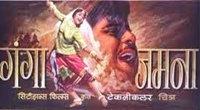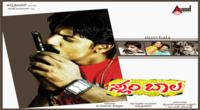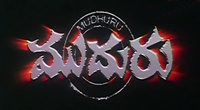
The word thou (/ða?/) is a second person singular pronoun in English. It is now largely archaic, having been replaced in most contexts by you. It is used in parts of Northern England and in Scots (/ðu/), and also in rural parts of Newfoundland albeit as a recessive feature. Thou is the nominative form; the oblique/objective form is thee (functioning as both accusative and dative), the possessive is thy (adjective) or thine (adjective before a vowel or pronoun) and the reflexive is thyself. When thou is the grammatical subject of a finite verb in the indicative mood, the verb form typically ends in -(e)st (e.g., "thou goest"; "thou do(e)st"), but in some cases just -t (e.g., "thou art"; "thou shalt"), although in some dialects of Old English (mainly in the North), this verb form ended in -s, hence the Quaker habit of using what looks like the third person form of the verb with "thee" as the subject (paralleling the usage of "you").
Originally, thou was simply the singular counterpart to the plural pronoun ye, derived from an ancient Indo-European root. In Middle English, thou was sometimes abbreviated by putting a small "u" over the letter thorn: þ?. Starting in the 1300s, thou was used to express intimacy, familiarity or even disrespect, while another pronoun, you, the oblique/objective form of ye, was used for formal circumstances (see T–V distinction). In the 17th century, thou fell into disuse in the standard language, often regarded as impolite, but persisted, sometimes in an altered form, in regional dialects of England and Scotland, as well as in the language of such religious groups as the Society of Friends. The use of the pronoun is also still present in poetry.
Early English translations of the Bible used the familiar singular form of the second person, which mirrors common usage trends in other languages. The familiar and singular form is used when speaking to God in French (in Protestantism both in past and present, in Catholicism since the post-Vatican II reforms), German, Spanish, Italian, Portuguese, Ukrainian, Russian, Yiddish, Turkish, Lithuanian, and Scottish Gaelic (all of which maintain the use of an "informal" singular form of the second person in modern speech). In addition, the translators of the King James Version of the Bible attempted to maintain the distinction found in Biblical Hebrew and Aramaic and Koine Greek between singular and plural second person pronouns and verb forms, so they used thou, thee, thy, and thine for singular, and ye, you, your, and yours for plural.
In standard modern English, thou continues to be used in formal religious contexts, in literature that seeks to reproduce archaic language and in certain fixed phrases such as "fare thee well". For this reason, many associate the pronoun with solemnity or formality. Many dialects have compensated for the lack of a singular/plural distinction caused by the disappearance of thou and ye through the creation of new plural pronouns or pronominals, such as yinz, yous and y'all or the colloquial you guys. Ye remains common in some parts of Ireland but these examples just given vary regionally and are usually restricted to colloquial speech.
Contents
Grammar
Because thou has passed out of common use, its traditional forms are often confused by those imitating archaic speech.
Declension
The English personal pronouns have standardized declension according to the following table:
| Nominative | Oblique | Genitive | Possessive | ||
|---|---|---|---|---|---|
| 1st person | singular | I | me | my/mine | mine |
| plural | we | us | our | ours | |
| 2nd person | singular informal | thou | thee | thy/thine | thine |
| plural or formal singular | ye, you | you | your | yours | |
| 3rd person | singular | he/she/it | him/her/it | his/her/his (it) | his/hers/his |
| plural | they | them | their | theirs | |
Conjugation
Verb forms used after thou generally end in -est (pronounced /-?st/ or /-?st/) or -st in the indicative mood in both the present and the past tenses. These forms are used for both strong and weak verbs.
Typical examples of the standard present and past tense forms follow. The e in the ending is optional; early English spelling had not yet been standardized. In verse, the choice about whether to use the e often depended upon considerations of meter.
- to know: thou knowest, thou knewest
- to drive: thou drivest, thou drovest
- to make: thou makest, thou madest
- to love: thou lovest, thou lovedst
Modal verbs also have -(e)st added to their forms:
- can: thou canst
- could: thou couldst
- may: thou mayest
- might: thou mightst
- should: thou shouldst
- would: thou wouldst
- ought to: thou oughtest to
A few verbs have irregular thou forms:
- to be: thou art (or thou beest), thou wast /w?st/ (or thou wert; originally thou were)
- to have: thou hast, thou hadst
- to do: thou dost /d?st/ (or thou doest in non-auxiliary use) and thou didst
- shall: thou shalt
- will: thou wilt
- must: thou must (not inflected)
In Proto-English, the second-person singular verb inflection was -es. This came down unchanged from Indo-European and can be seen in quite distantly related Indo-European languages: Russian ??????, znayesh, thou knowest; Latin amas, thou lovest. (This is parallel to the history of the third-person form, in Old English -eþ, Russian, ?????, znayet, he knoweth, Latin amat he loveth.) The anomalous development from -es to modern English -est, which took place separately at around the same time in the closely related German and West Frisian languages, is understood to be caused by an assimilation of the consonant of the pronoun, which often followed the verb. This is most readily observed in German: liebes du ? liebstu ? liebst du (lovest thou). The three languages belong to the West Germanic branch of the Indo-European languages, of which West Frisian is the closest to English.







.jpg)



.jpg)
.jpg)








.jpg)